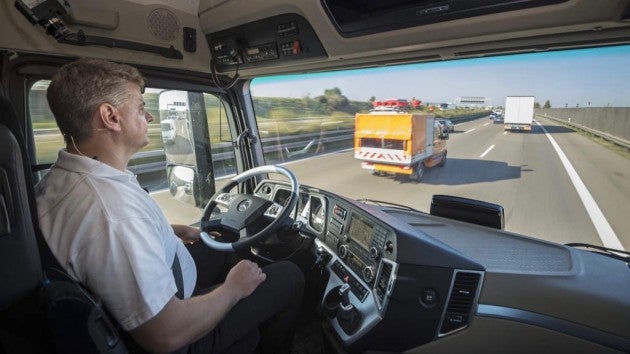Chancellor finds Budget for driverless lorry trials

The UK government has confirmed that it will start trialling driverless lorry technology in the UK.
Earlier in the month the Department for Transport said that the UK was to lead the way in trialling “HGV platoons”. Now the Chancellor himself has confirmed the news as part of his latest Budget.
The government calls the trials “lorry platooning” because of the distinctive way the system operates. One human-driven lorry leads a convoy of around ten computer-controlled lorries, which follow in tight formation.
In the latest Budget, the UK government says that it wants the country to become “a global centre for excellence in connected and autonomous vehicles”.
To that end, it also confirmed previous news that cars will be trialled on UK roads in 2017.
Related: Best self-driving tech from the Geneva Motor Show
Indeed, Chancellor George Osborne had released a pre-budget statement on the matter just a few days ago, claiming that “Driverless cars could represent the most fundamental change to transport since the invention of the internal combustion engine.”
Osborne plans to clear the legislative hurdles that would mean driverless cars can be tested on UK motorways, thus giving the country a major advantage in the field. While most of the biggest companies developing driverless car technology are based in the US, they often run into difficulties at the testing phase due to the litigious states they operate from.
Next, check out our CES 2016 interview with Don Butler, executive director for Connected Vehicles and Services at Ford:
Would you trust a mostly driverless convoy on the UK’s busy motorways? Let us know in the comments below.


